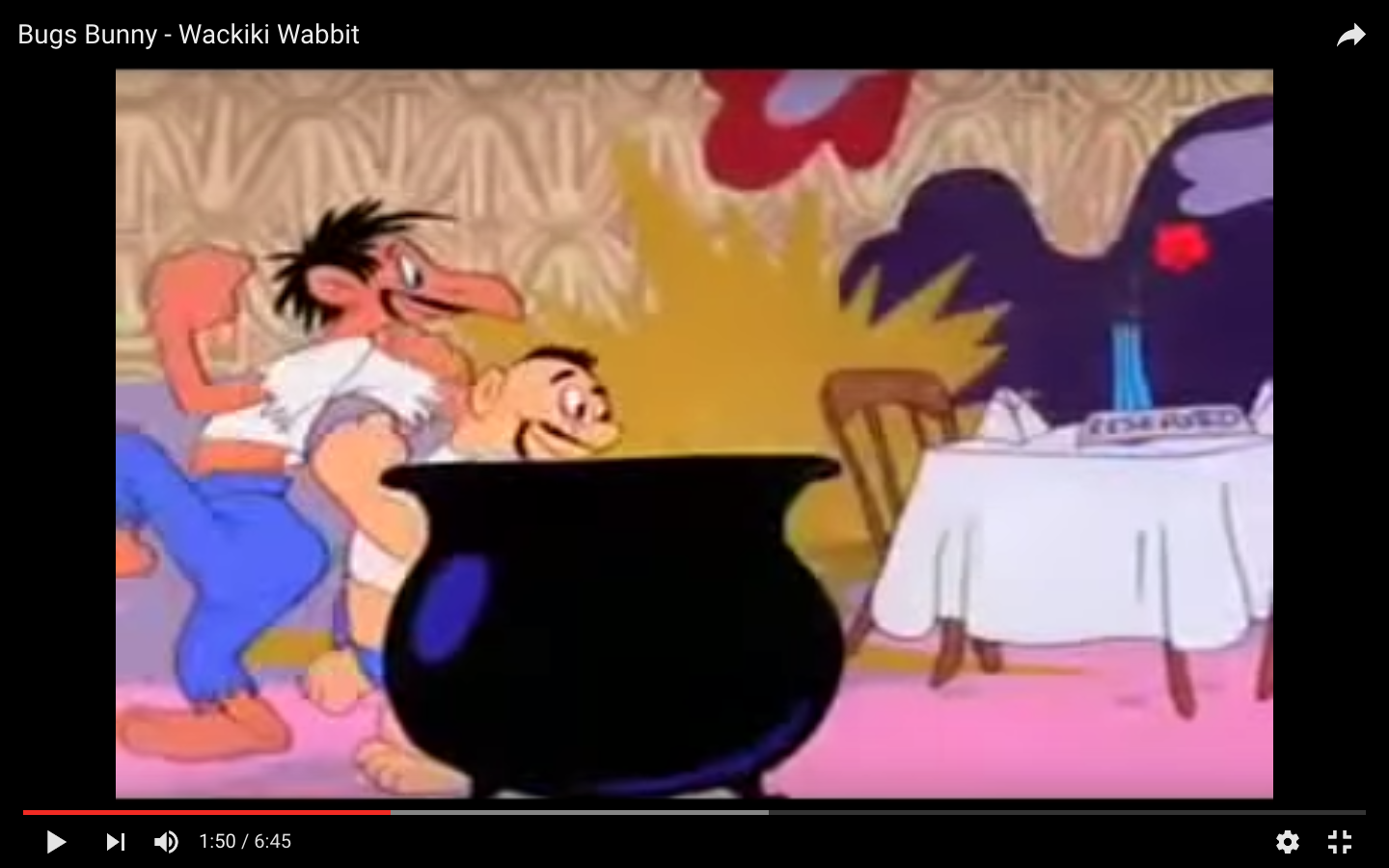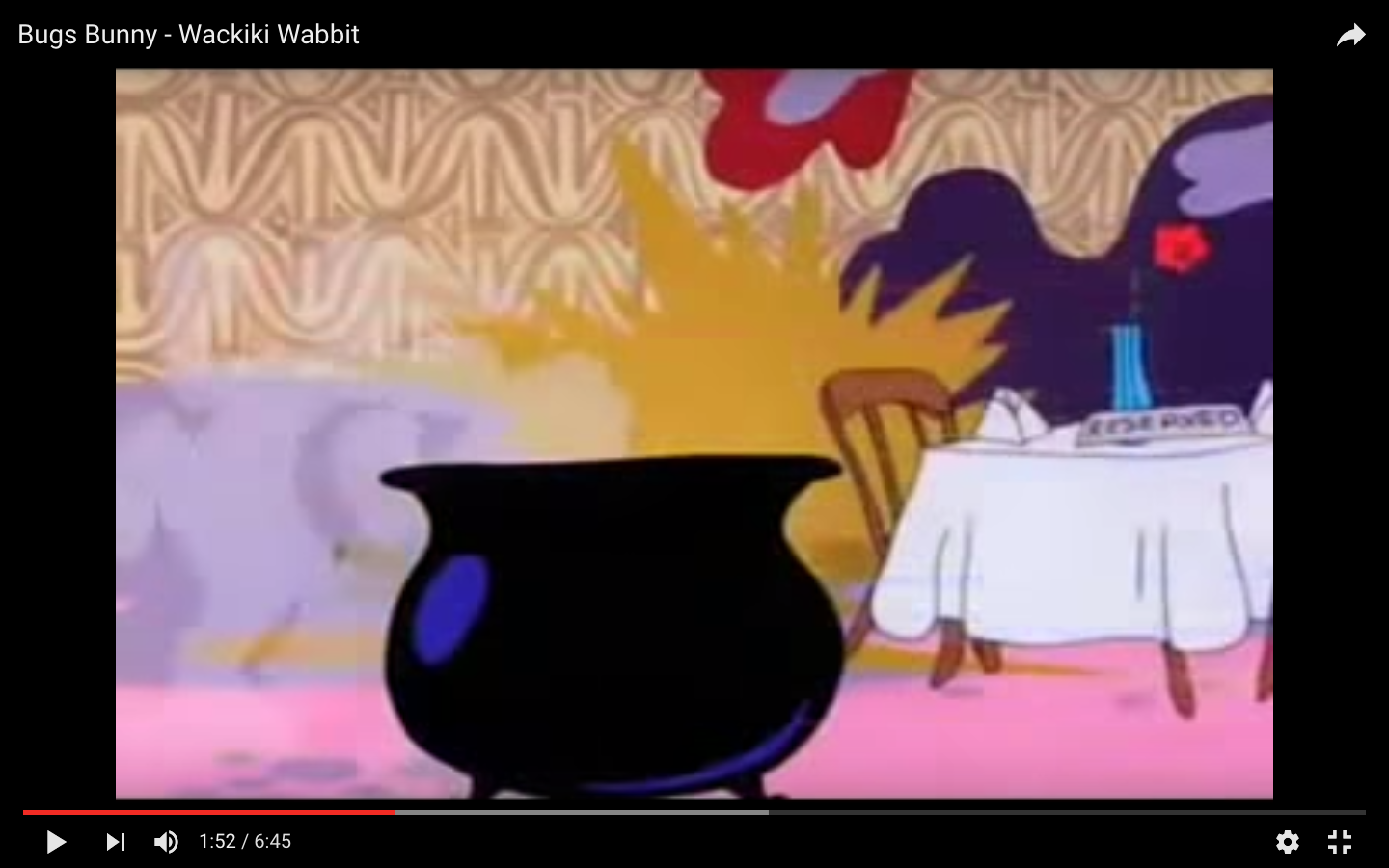A Primer on Imagined Black English
Frequently, new slang terms catch on in the (white) American mainstream that originates in slang from African American English (AAE). Sometimes it's not even slang, but is the result of the phonology of AAE being reanalyzed by people who do not speak the dialect. I recently found myself explaining the difference between white and black meanings for fuckboy, ghost, bae, and a few others, and realized it might be good to set down some thoughts on this.
Appropriation and Borrowing
What is Appropriation?
There's a lot of discussion lately about appropriation, which I won't wade into beyond discussing the idea that appropriation is more or less the same thing as linguistic "borrowing" -- a term I've never quite understood since it's not like it'll be given back -- except that appropriation occurs when there's a power difference, and the source of the lexical item (or clothing or whatever) is stigmatized, persecuted, or otherwise "lower" class. I highly recommend reading up on cultural appropriation, but I won't be explaining it much here.
What is Borrowing?
Borrowing, the way we teach it in say, Introduction to Linguistics, is when one language acquires a word or phrase from another language. Examples in English are panini (a type of grilled sandwich, from Italian panino), pork (from French porc, cf. swine), ketchup (ostensibly from a dialect of the Yue language, one of the sub-families of Chinese), and otaku (from Japanese "shut in").
Borrowing can happen across dialects. For instance, I have terribly posh friends who, while American, choose to talk about how they'll put their mackintosh (raincoat) in the boot (trunk) if it rains. I know people who say lass (Scottish English), and people who suggest we prepone (Indian English) meetings.
Borrowing isn't always strictly correct in the source language. In French, you may attend a dinner party where you should wear un smoking. While this is clearly from (British) English smoking jacket, the meaning is a tuxedo. Panini is the plural for "sandwich" in Italian.
Similarly, borrowing isn't necessarily always actually from the source language. A perfect example of this is the French word, borrowed from English, for a makeover. You'd be forgiven for logically guessing that the word is makeover, but in fact, in French, it's un re-looking. Similarly, in German, a cell phone is a handy. From English, but... not really.
Imagined Black English
I read an excellent article a while back on Online Imagined Black English, and a couple of pieces building on it, and while I don't necessarily agree with everything, I think these authors are discussing some very important points. Moreover, Imagined Black English is a perfect term for some of the borrowing I see, and how white, mainstream slang ostensibly borrowed from African American English is about as AAE as re-looking is English.
Examples
To better understand what I'm talking about, I think it's prudent to introduce a handful of terms and compare, in broad strokes, how they're used by different communities I interact with. My discussion of AAE is primarily from my circle of family and friends, so mostly East Coast and the South (sorry Oakland). Although most of the material I'm discussing seems not to be region specific, there may be nuances that differ from place to place.
Fuckboy (fuccboi, etc.)
How the white mainstream uses it: A boy-toy. That is, a guy who's good in bed, but not good for much else. You might hate yourself for sleeping with him. See this thinkpiece in Slate, for example, or this one in Thought Catalog.
How it's used in AAE: This is tricky, because I don't generally hear it except as taboo avoidance when people intend to say fuck nigga. More broadly, here, fuck functions as an adjective, meaning "illegitimate," "useless," or "trifling." So you could just as easily say that fuck bitch stay on some fuck shit, meaning "that trifling bitch is always concerned with nonsense." As far as I can tell, it went fuck nigga ---> fuck boy ("triflin' boy") ----> fuckboy ("boy-toy, fuckable douchebag").
Spelling note: Crips and crip sympathizers, among other things, sometimes avoid writing <ck> (brackets indicate we're talking explicitly about spelling), because it ostensibly can stand for "crip killer." This avoidance applies to all <ck> clusters, not just fuck so you also get things like <blacc> ,<locc>, and <cocc bloccer>. Bloods have similar, but different spelling superstitions. Not sure about other gangs, but I wouldn't be surprised to hear they do too. People not associated with that life have borrowed those spellings, evidently because they look cool. So obviously, just because a journalist at Jezebel writes fuccboi, this does not mean the author is a crip.
Ghost (verb)
How the white mainstream uses it: to break up with someone or otherwise end a relationship by refusing to answer phone calls, and blocking the other person on social media. A freeze out. See this discussion in the Huffington Post on The Psychology of Ghosting: Why People Do It And A Better Way To Break Up, or GQ's Gentelman's Guide To Ghosting or Psychology Today on Why Ghosting Hurts So Much.
How it's used in AAE: To leave. As long as I can remember I've had friends who announce their exit with a peace sign and the declaration "I'm ghost." Think classic Warner Bros. cartoons where the character runs away so fast their entire outline is left, like the starving, ship-wrecked sailors chasing after Bugs Bunny in Wackiki Wabbit.
Yes, not responding was an extension of the meaning, but at most it was just generally not being around, and not specifically "breaking up with someone by abruptly stopping responding to their texts and calls." It could just as easily be "I went to the bathroom and when I got back she'd ghosted." That is, it has become more specialized.
Bae, and being bae
How the white mainstream uses it: (1) equivalent to "cool," "good," or "desirable." The white mainstream uses it as a predicate adjective, so you see things like "Coffee is bae!"
(2) one's significant other in a longterm, committed, romantic relationship, as in "Bieber is my bae."
How it's used in AAE: The same way babe is used. Because it's literally the same word. It has been use this way for a long time, and will likely continue, despite white people declaring in 2015 that "bae is dead." It is not an acronym for Before Anyone Else any more than shit is an acronym for Ship High In Transit. Which it's not. Granted, there's not actually consensus on my proposed etymology, so I'm going to make a case for it:
A coda consonant is any consonant that happens after the vowel (the "nucleus") in a syllable. So the /t/ in cat is a coda consonant. AAE has a number of phonological processes that allow for the deletion or reduction of coda consonants. Some are well described, like -t/d deletion, which gives rise to pronunciations like "pass" for "past" or "han" for "hand." Another is r-less-ness, which is how you get brotha from brother. Another is l-vocalization which means turning L into a vowel (so all three would be she juss a go' digga "she's just a gold digger"). Another phenomenon that is not as well described, and which I'm working on, and will likely write a blog post about shortly, is that pretty much anything after the vowel that is not p, t, or k can be deleted. Technically p, t, and k can too, but they also are usually accompanied by a secondary glottal stop (the sound in the middle of uh-oh). b, d, and g can get a glottal stop, but don't have to, and they can also be deleted or reduced to just sounding like the vowel that came before. The bottom line is that b can be deleted after vowels if it's not the onset of a syllable.
This means that when my friend Christian's grandmother talks to her, she calls her bae, not because she's imitating teens these days, but because it's how she's always said it in her variety of AAE. It's also pretty well established that contemporary white bae (CWB) caught on after the instagram post where a woman pretended to be asleep and pretended that her boyfriend caught her sleeping, and commented bae caught me slippin ("babe caught me sleeping"), only to be betrayed by the mirror behind her.
Of all the recent borrowings, this is the one that most consistently pisses off my female friends. Imagine the pet name your grandparents called you becoming this weird thing that a bunch of random white teenagers use really weirdly (for me, that'd be "coffee is peanut!" or "IHOP pancakes are tiger!").
Cray cray
see bae. Note that the white mainstream use favors reduplication (so cray cray) whereas the AAE use does not (tha shi cray "That shit is crazy").
Turnt (up)
How the white mainstream uses it: to get crazy, likely at a party or social gathering, and more than likely under the influence of drugs and alcohol. See this terrible shitpost of an article, for instance. (Note to self: write a post about how Urban Dictionary is not a reliable source and if you unquestioningly cite it, you should never be allowed to write anything ever.)
How it's used in AAE: turned, the past participle of to turn. There is the metaphorical meaning of "wild and crazy" as in to turn up but turnt not a special word for it distinct from turned. Word final -ed in past participles in AAE frequently devoices (meaning d becomes t). So turnt is no more special than killt (he damn near got his ass killt!) or other participles in mainstream white English that this has already happened to (burnt, spilt, dreamt, etc.)
Gramatical note: For the last year or so I've been informally questioning white people who use turnt in conversation, and who do not otherwise indicate familiarity with AAE. They tend to treat it as an adjective, and do not conjugate it in the past and future, so while most of my AAE speaking friends would say "we're turning up" or "we gonna turn up later tonight" most of the non AAE speakers said "we're getting turnt up" and "we're gonna get turnt up," for present and future respectively.
Bye (Felicia)
How the white mainstream uses it: (1) a way of dismissing someone. (2) a neutral way of saying "goodbye." In both cases, the name Felicia is obligatory.
How it's used in AAE: dismissive bye is something that has been around a long time in AAE, but is used either on it's own, or with the name of the person you're addressing. If I say something stupid to Erica, she can (and does) say "Bye Taylor." If I say "no, wait, what I meant was..." She can cut me off with an emphatic "BYE."
So where did Felicia come from? There's a movie, called Friday that came out in 1995, which features a character named Felicia, who is constantly being told off. Sometime around 2015, somebody somewhere started quoting the movie to people who hadn't seen it, and it caught and spread like wildfire. Recently, @linguistopher was told Bye, Felicia! by a white male (non AAE speaking) acquaintance who's over 40 and who had never seen nor heard of the movie Friday, and he had to ask a few clarifying questions to avoid miscommunication ("Are you intentionally being dismissive? Why are you quoting the movie Friday? Were you aware that that is dismissive in my speech community? Oh, well, cool. I get it now. Aight, I'm ghost.").
Fun fact: in order to get images of Felicia, you have to google both Felicia AND Friday.
Basic (bitch/betch)
How the white mainstream uses it: bland, normal, run-of-the-mill, shallow. It is now associated with the stereotype of the white girl in Uggs and yoga pants, drinking a pumpkin-spice latte. When you google it, wikipedia legit redirects you to "airhead." It's almost always used with bitch or the taboo avoidance form betch, and its principle meaning seems to be "shallow." It also seems to be gendered, specifically referring to women, and raced, generally referring to white women.
How it's used in AAE: Stupid. Brain dead. "You got a pulse and that's it." The idea is you're still stuck on the basics (like 2+2 = ?). It is not gendered, so you will hear things like "tell his basic ass to shut the hell up." It is not something anyone would dream of calling themselves, because it's emphatic and negative, and doesn't lend itself to self effacing behavior (unlike "I'm just being stupid"). Compare what you get when you search for "I'm so basic" on Twitter to "basic ass" for instance (where ass in an intensifier). Roughly once a week I imagine the first person who was called basic and was so basic she thought it meant "totally normal" and I crack the fuck up.
Becky
How the white mainstream uses it: (1) a short form of Rebecca, currently being eclipsed by Becks. (2) It should never be used because it's a slur against white people, equivalent to the n-word. I'm not kidding, this seems to be a popular view. It's not clear whether, following Beyoncé's Lemonade, the mainstream is aware that "Becky" is not a new term.
How it's used in AAE: A generic white girl. That is, the AAE meaning of Becky is almost exactly the white mainstream meaning of basic betch. It's not clear whether the Iggy Azaleas of the world are aware that Becky has ben around for at least 20 years.
"Becky" in 1992, on the right. Left, suspected Bridget.
What's more, Becky is not the only term, it's just the most salient and popular right now. For instance, notorious flat-earth conspiracy theorist and rapper B.o.B., when discussing white girls, refers to Becky, Suzie, Bridget, and Kelly.
Note: I have not heard AAE speakers ever say "Bye, Felicia" when not quoting Friday, but I absolutely have heard AAE speakers say "Bye, Becky," when dismissing a basic Becks who has said something insensitive and uninformed, and maybe more than a little racist.
Where do these differences come from?
My Hypothesis: Segregation and Context Clues
We still live in a very segregated society. By and large, white and black don't interact much, and by and large AAE speakers are black and non-speakers are white. Without getting too far into it, white and black Americans tend not to live in the same neighborhoods (due to redlining, block-busting, and federal housing policy that promoted racial segregation), tend not to attend the same schools (due to the failures of desgregation discussed here and here), and tend not to interact much with one another socially. Recent polls have shown that 3/4 of white people don't have any black friends. So, we're just not interacting much in person.
That said, mass media has always given a window into other people's lives (this borrowing is not new: look at hip/hep, for instance). Social media, and the internet more generally, have made it so people who do not interact much in person are exposed to the language and culture of people they don't otherwise interact with, and on a much larger scale than before.
My hypothesis is that the mainstream is exposed to language they otherwise wouldn't be (for instance by reading the formerly trending #invitedToTheCookout), and they do their best to interpret new things using context clues. Some things are easy, and don't require any thought at all ("Ain't nobody got time for that!") whereas others seem obvious, but maybe aren't as transparent as they seem at first glance ("He ghosted"). So people see new things, and use context clues to interpret them. But their context -- their lived experience, their frame of reference -- is entirely different. For instance, watching an hour-and-a-half movie about a black barbershop is different than sitting for 2 hours in a black barbershop every week (#integrateTheBarbershops).
Who owns this language? Is it Appropriation?
This is really tricky. A close friend of mine who doesn't speak AAE recently argued "these terms belong to the internet now. They belong to everyone." To a certain extent I agree. I also agree when people say "you're using that wrong!" It's complicated.
The thing is, the mainstream uses are different than the uses that have been around for a while in AAE. And it's clearly the same pattern as linguistic borrowing everywhere. So does that mean it's not insensitive appropriation, even when it's Iggy Azalea? Is it being used wrong when it moves from 10% of the population using it one way to 80% of the population using it another, or do we just say there are two terms?
What I do know is that people won't be convinced that coffee is bae is the wrong way to use bae any more than the French are going to be convinced to stop having re-looking specials on TV or the Germans will stop placing calls on their handys. And while I want to argue that people should think about context when they choose whether or not to use terms borrowed (taken? inspired? learned? ) from AAE, I realize that this would require people to already know what terms people they don't generally interact with are already using and using differently. And of course, the problem is that with French re-looking it's just a "fun fact!" whereas with AAE in the US there's a long history of struggle and oppression. AAE was first recognized as a valid dialect in the late 1960s. Black children are still referred to speech pathologists and special education in shockingly large numbers, and it's frequently because of the dialect they speak, and no actual pathology or learning disability. Not only has AAE been historically stigmatized, but it's also been the subject of mockery and parody for centuries. So its understandable that bae and ghost may be seen as evocative of Amos 'n' Andy level mockery, or of theft of culture. At the same time, nobody is accusing teenagers imitating what they see on The Gram of intentional cultural appropriation. And if advertising execs are just imitating the (white) teens they're trying to market to, this gets really murky really fast, since it's totally plausible and reasonable to argue that they genuinely don't know that it's not just teenspeak or millenial slang. And that's how you end up with a young black woman inventing the phrase on fleek (we know exactly who and when!) and not seeing a dime from companies that use it in advertising -- and how you get a Taco Bell exec attempting to "borrow a millenial phrase" and saying on cleeck. Multiple times.
Personally, I try not to judge and to keep an open mind when I come across people who 'misuse' the above terms, since I realize they just want to stay fresh, and decided to give their vocabulary a re-looking.
The guy on the right had a relooking involving a smoking. Très tendance.
-----
©Taylor Jones 2016
Have a question or comment? Share your thoughts below!












